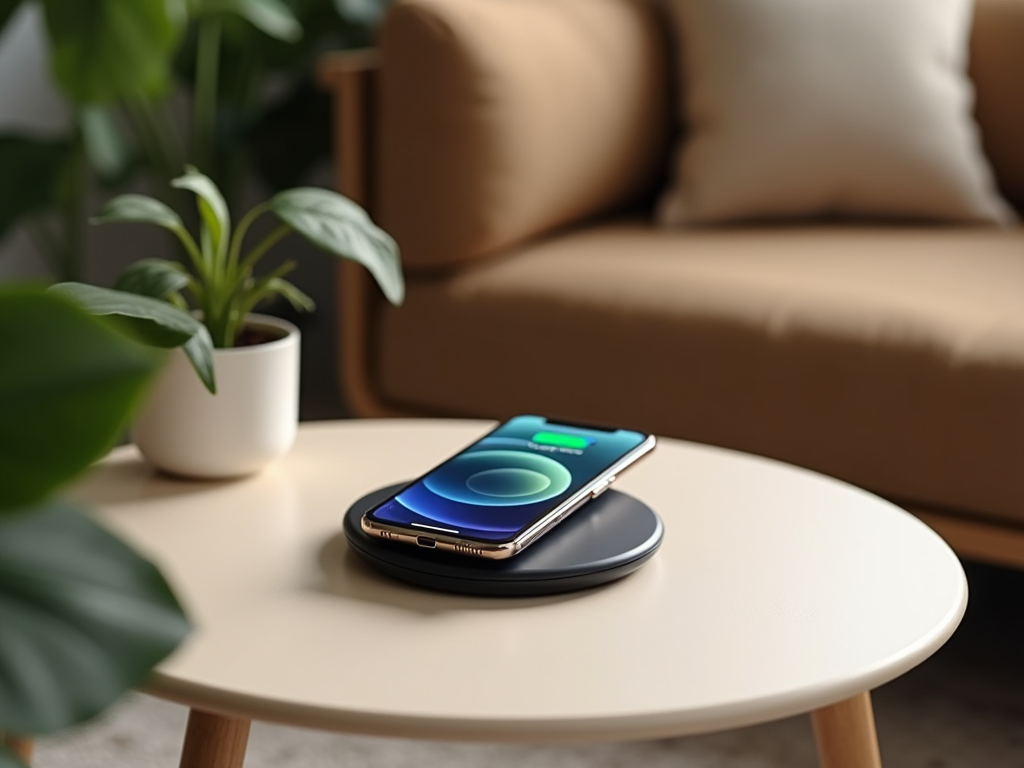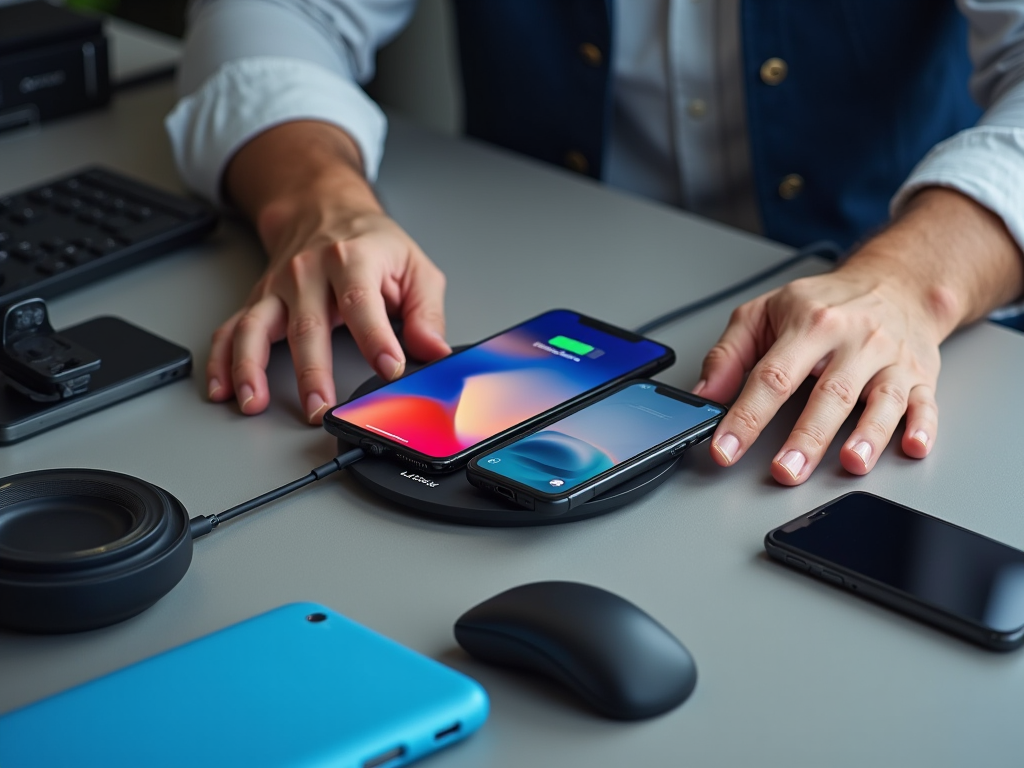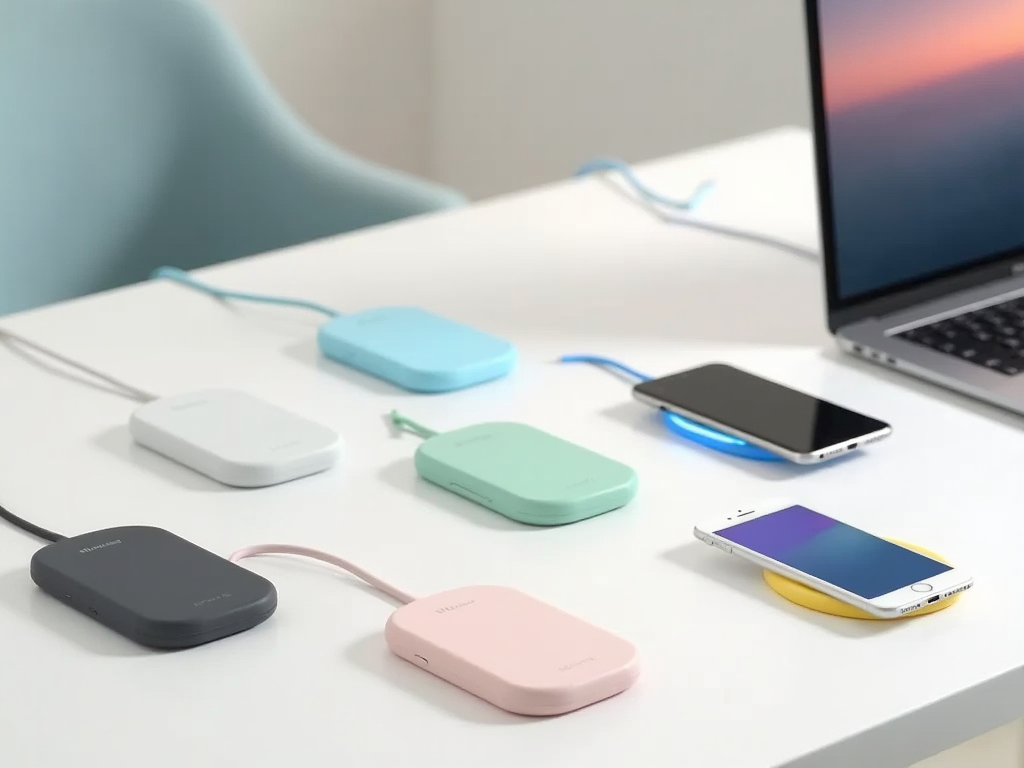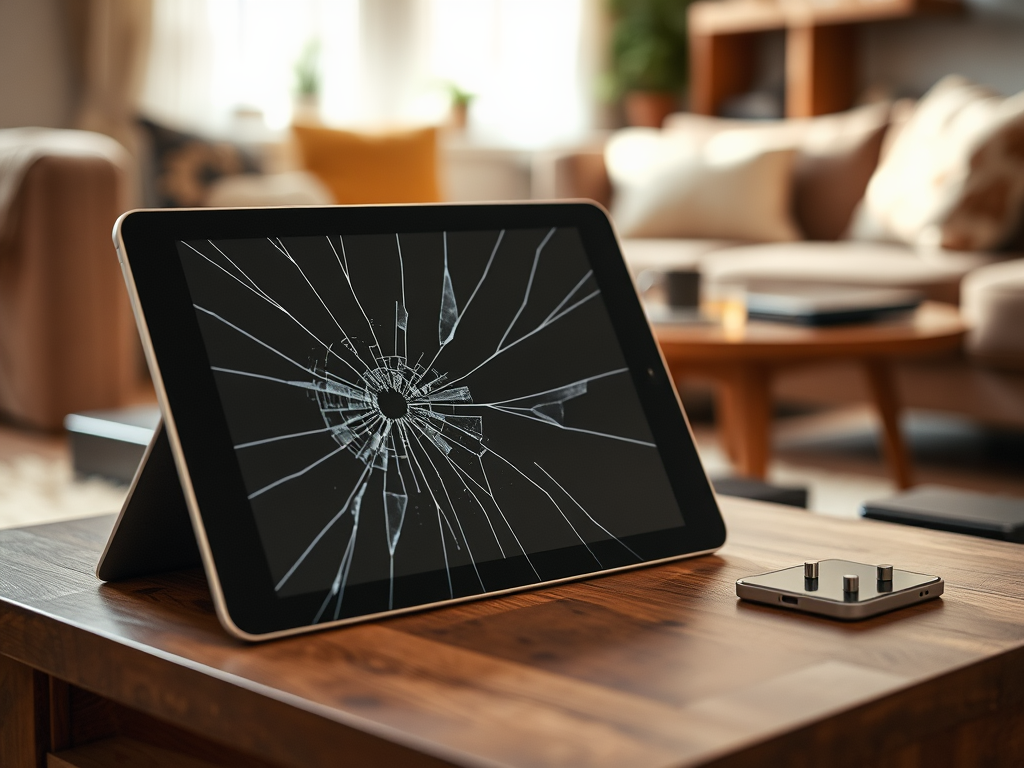As our lives become increasingly dominated by smartphones and other personal electronics, the importance of having a reliable charging solution cannot be overstated. Wireless chargers offer a level of convenience that traditional wired chargers simply cannot match. However, not all wireless chargers are created equal, and knowing what to look for can make all the difference in your charging experience. Whether you’re a tech enthusiast or just someone looking for practicality, this guide will help you navigate the essential features that define a quality wireless charger. Let’s dive into the must-have qualities that can elevate your charging game and simplify your daily routine.
Compatibility with Devices

To start, ensuring that a wireless charger is compatible with your devices is crucial. Many newer smartphones and gadgets adhere to specific charging standards, the most commonly being the Qi standard. Failing to check this compatibility can lead to frustration and inefficiencies in your day-to-day charging tasks. Moreover, consider the variety of devices you own and whether the charger can accommodate them all. Some chargers even come with multiple charging pads, enabling simultaneous charging for multiple devices. Therefore, before making a purchase, verify that the charger matches your current and future devices.
The Qi standard has become the industry benchmark for wireless charging. It assures users that their devices can charge effectively and safely. When you’re shopping for a wireless charger, look for labels indicating Qi certification. This ensures not just compatibility but optimal performance as well. With many new smartphones embracing this technology, having a Qi-compliant charger guarantees that you are future-proofing your charging needs.
Charging Speed

The speed at which a wireless charger can deliver power is a significant aspect to consider. Imagine you’re rushing out the door and realize your phone’s battery is low; a fast charger can be a lifesaver. Various factors contribute to a charger’s speed, most notably its wattage ratings. Wireless chargers typically offer different wattages, which can drastically influence charging times. Higher wattage ratings often result in quicker charging, which is particularly beneficial for high-performance devices that demand more power. Therefore, understanding wattage is essential to ensure efficient charging.
| Wattage | Charging Speed | Ideal For |
|---|---|---|
| 5W | Slow | Basic smartphones |
| 10W | Moderate | Most smartphones |
| 15W | Fast | High-performance devices |
Understanding wattage ratings is crucial for selecting a charger that suits your needs. For example, a charger rated for 5W might suffice for basic smartphones but could leave advanced models wanting. On the other hand, a 15W charger realistically meets the demands of more advanced devices, enhancing your overall experience. Thus, when selecting a wireless charger, ensure that its wattage aligns with your device requirements for effective and efficient charging.
Design and Build Quality
The aesthetics and quality of a wireless charger go beyond mere appearance. A well-designed charger will not only look good on your desk but also endure everyday wear and tear. Seek out models that incorporate durable materials such as aluminum or high-grade plastic. A thoughtfully designed charger will provide stability, ensuring your device stays in place while charging. It’s also wise to consider how the design fits with your personal style and workspace. Ultimately, the right choice can enhance your overall charging experience, combining functionality with an appealing look.
Durability is an often-overlooked factor that can greatly influence your satisfaction with a wireless charger. A robust design can tolerate drops and accidental bumps, giving you peace of mind as you go about your day. Look for chargers that promise quality craftsmanship and offer warranties to back up their claims. Furthermore, avoiding prone-to-scratch surfaces can prolong the charger’s lifespan. A durable charger ensures that even with regular use, your investment will last longer, providing consistent performance.
Safety Features
While the primary goal of a wireless charger is to power your devices, safety should always be a top priority. Various safety features serve as safeguards against overheating, overcharging, and other electrical hazards. These safety protocols not only protect your device but also enhance the charger’s lifespan. Look for chargers equipped with features like overheating and overcurrent protection. Prioritizing safety features in your search can save you potential headaches down the line as well as protect your investment in technology.
Overheating and overcurrent protection features are particularly important for maintaining the integrity of both the charger and your devices. When a charger gets too hot, it can lead to malfunctioning or even damage to your smartphone’s battery. Chargers with built-in thermal regulation technology significantly reduce these risks. Additionally, units that automatically regulate voltage ensure your devices receive the correct power supply. These safety features should be non-negotiable when considering a purchase, as they contribute directly to the longevity and reliability of your electronics.
Portability and Size
The size and weight of your wireless charger can have an enormous impact on convenience, especially for those with a mobile lifestyle. If you travel often, opt for a lightweight charger that can easily slip into your bag without adding unnecessary bulk. Many models offer slim profiles and foldable designs, making them suitable for packing and storage. A portable charger allows you to maintain your device’s power without being tethered to an outlet. This flexibility can make all the difference in your daily routine, allowing for effortless charging wherever you go.
When examining your potential options, consider the weight and thickness of the charger. A heavier charger might feel stable but can also be cumbersome when you’re on the move. In contrast, a thinner model may slide into your bag but lack the sturdiness you prefer. Finding the right balance between portability and stability can enhance your overall user experience. Make sure to handle a few options in person if possible, as this can often help inform your decision process.
Brand Reputation and Customer Reviews
No matter how perfect a charger appears on paper, nothing beats real-world feedback from existing users. Choosing a well-established, reputable brand can increase your confidence in performance and reliability. Look for brands that offer comprehensive customer service and support to handle any potential issues that may arise. Reading customer reviews can also shed light on specific product experiences, highlighting both the pros and the cons. Proper research will ultimately serve as your best guide, leading you to a product that’s backed by a solid reputation.
Conducting thorough research can prevent poor purchasing decisions. Check various platforms for reviews and testimonials about different wireless chargers. Consumer forums, tech blogs, and retailer sites provide valuable user insights. Pay attention to recurring themes—whether that’s issues related to compatibility, charging speed, or durability. The insights from actual users will empower you to make an informed choice that aligns with your personal needs and preferences.
Conclusion
In summary, making a thoughtful decision when purchasing a wireless charger involves evaluating several key qualities such as compatibility, charging speed, design, safety features, portability, and brand reputation. These attributes not only affect how well the charger performs but also enhance its suitability for your lifestyle. With the right qualities in mind, you can ensure that your investment leads to a hassle-free charging experience that complements your daily routine. Elevating your charging experience begins with understanding what truly matters in a wireless charger, so prioritize wisely.
Frequently Asked Questions
- What is the difference between a standard charger and a wireless charger? A standard charger requires a physical connection to the device, while a wireless charger uses electromagnetic fields to charge devices without cables.
- Can I use a wireless charger for my tablet? Yes, as long as the tablet supports wireless charging, you can use a wireless charger to power it.
- Are all wireless chargers the same size? No, wireless chargers come in various sizes and designs. It’s important to choose one that fits your space and style preferences.
- How do I know if my phone is compatible with a wireless charger? Check the manufacturer’s specifications or look for the Qi logo on the device to determine compatibility with wireless charging.
- Will using a wireless charger affect my phone’s battery life? Using a quality wireless charger should not negatively impact your battery life, as long as it has the necessary safety features to prevent overheating and overcharging.
- Can I use my phone while it is charging on a wireless charger? Yes, you can usually use your phone while it charges; however, it might charge slower if used while charging.



